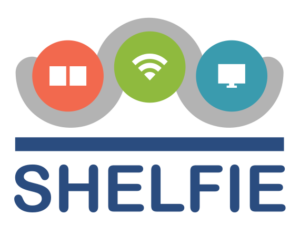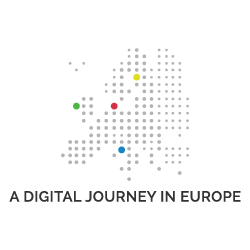The knowledge of how to use connected digital devices is necessary for: working life, education, economy, health, leisure and personal life. Internet is an increasingly important part of school work and everyday life and social media is a natural arena for socialising for young people. But having a good digital infrastructure isn’t enough. There is a great need to create the right conditions for educating children and young people in digital skills. Schools need to develop tools to give children and young people the understanding they need to be able to work as digital citizens. Several European projects have already tackled this problem: SHELFIE intends to build on what has already been done and create an innovative proposal/resource to further advance the schools of Europe in a serious, aware, responsible and effective access to the web and to the digital resources.
 ENLIVEN (Enhanced Learning and Teaching in International Learning Environments)
ENLIVEN (Enhanced Learning and Teaching in International Learning Environments)
The ENLIVEN project aims to develop foundations for an innovative international digital learning environment. Nowadays, there is a pressing need to combine traditional – in presence – education with other forms of teaching and learning with the objective of supporting the modernization of education. In particular, online education presents limitations and opportunities that can be recognised, mitigated, built upon, and used to take advantage of their positive aspects in view of present and future needs.
The project partners, a consortium of six universities from all over Europe, are committed to improve and enrich existing distance learning practices. Building on the experiences of e-learning during the first phase of pandemic, the project’s mission is to create new stimulating experiences for all the actors involved, incrementing the levels of participation and inclusion in virtual classrooms, thus making virtual mobility closer to physical mobility. By creating an enhanced virtual international learning environment, we aim to deepen the collaboration with European partners.
The University of Pisa is the coordinator of this project and the LabCD collaborates.
Il LabCD è partner nei progetti:
A digital journey in Europe Erasmus Plus KA2.
Il progetto ha lo scopo di ragionare sul rapporto tra nuove tecnologie e didattica per la scuola primaria.
Il LabCD ha partecipato ai meeting, costruito e implementato il sito, organizzato il meeting che si è tenuto a Pisa nel maggio 2017. L’attività ha comportato l’organizzazione di workshop, l’apertura di varie attività con l’Istituto comprensivo Toniolo di Pisa e l’elaborazione di tutorial e materiali informativi riguardanti l’uso dei software di base e l’internet safety.
Tra le attività svolte in collaborazione con l’Istituto comprensivo Toniolo di Pisa si segnalano in particolare:
la partecipazione al TSS challenge (Working with Digital Autoptic Processes is Easier than You Think!) durante il congresso EADH di Roma DAY (Marion Lamé, Chiara Mannari)
la collaborazione con Pisa CoderDojo (il cui obiettivo è l’insegnamento della programmazione informatica ai giovani fra i 7 e i 17 anni) in un incontro presso il LabCD giovedì 16 febbraio 2017 dalle 15 alle 17 con due classi della scuola media Toniolo (Chiara Mannari, Cristina Morelli, Maria Simi).
EINFOSE European Information Science Education: encouraging mobility and learning outcomes harmonization. Erasmus Plus KA2. PI Università di Osijek (Croazia). Di Unipi partecipano Salvatore Ruggieri (resp.), Maria Simi, Vittore Casarosa, Enrica Salvatori. Tra i compiti: approntare una Learning and Communication Platform; produrre materiali per due summer school Achievements and Advances in Information Science e Research Methodology in Information Science e organizzare nel 2018 un grande evento a Pisa.
Il LabCD ha partecipato a una richiesta fondi sui progetti:
- RESCAH Reimagining the Ecosystem for Scholarly Communications in the Arts and Humanities. Programma COST dedicato a indagare il rapporto tra pratiche di ricerca e innovazione nella comunicazione scientifica.
- DHARMA: Digital Humanities for Academic EmpoweRment of Multidisciplinary Abilities. Erasmus Plus KA2 Finalità aiutare le varie università di Israele ad avviare percorsi di Digital Humanities. Il nostro contributo dovrebbe riguardare la definizione del curriculum (Maria Simi, Mirko Tavosanis, Alessandro Lenci, Enrica Salvatori).



